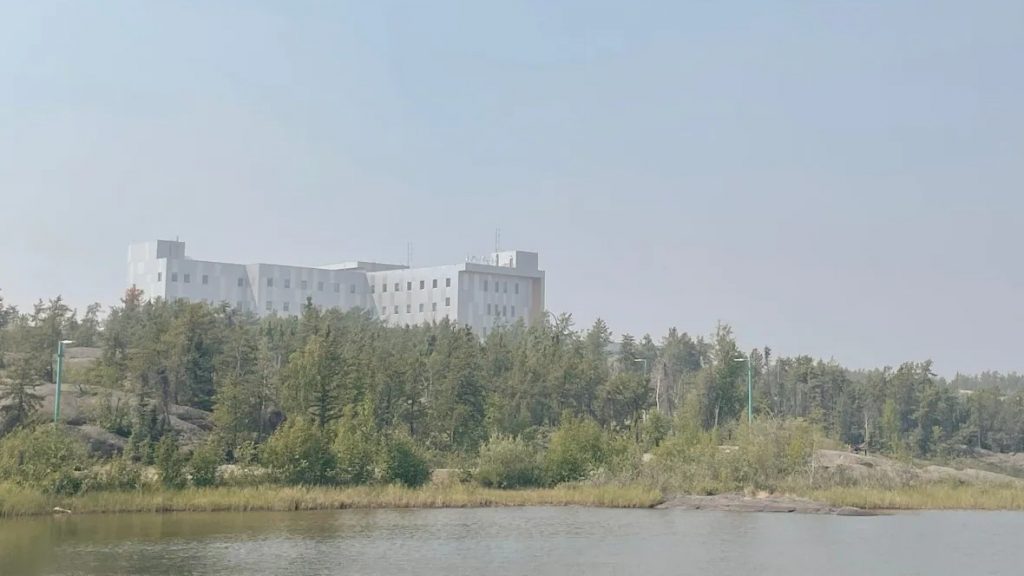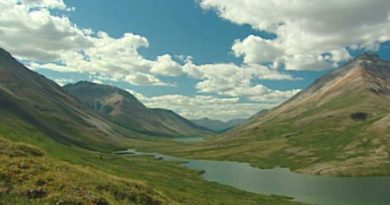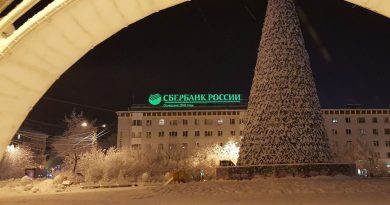High-to-extreme fire risk in most communities in Canada’s Northwest Territories

A wildfire by Vee Lake outside Yellowknife, an abandoned campfire near Norman Wells among recent reports
A wildfire was burning Tuesday evening about 10 kilometres north of the Yellowknife airport.
The fire was discovered about half a kilometre west of Vee Lake, and less than 400 metres from Vee Lake Road, as of Tuesday evening.
N.W.T. wildfire information officer Mike Westwick said in an email Tuesday night that the fire is less than one hectare and that crews are fighting the fire to limit its growth.
He said the cause of the wildfire is under investigation and that no communities are currently at risk.
Cabins, the Ranney Hill hiking trail and the Vee Lake boat launch are all near the fire.
54 active wildfires reported in N.W.T.
The Vee Lake fire is one of 54 active wildfires reported in the Northwest Territories, as of Wednesday morning.
Three of those fires occurred between Tuesday and Wednesday morning. In addition to Vee Lake, one of the recent fires started about 44 kilometres from Dettah, and the other less than a kilometre from Norman Wells.
The Norman Wells fire is thought to have been caused by an abandoned campfire on the beach, according to the Department of Environment and Natural Resources wildfire update website.
The man-made fire, noted to be near homes and “other assets that people care about,” was put out.
There are 19 active fires in the South Slave region, 14 in the North Slave, 12 in the Sahtu, six in the Dehcho and three wildfires in the Beaufort Delta. Most communities across the territory are noted as being at “high” or “extreme” risk of wildfire from Wednesday to Friday.
Yellowknife is currently under a city-wide fire ban to reduce wildfire risks.
Dehcho communities can expect higher levels of smoke and ash
Environment Canada also issued a smoke alert in the capital, warning of poor air quality and reduced visibility in the Yellowknife area.
According to the territorial environment department, Dehcho communities can also expect higher levels of smoke and ash, particularly in Wrigley. Tłı̨chǫ communities should also be aware of intense smoke, along with Délı̨nę.
There have so far been 86 wildfires reported, with 97,031 hectares of land affected across the territory.
The environment department notes that all active fires are being watched to protect communities, cabins and other infrastructure.
Residents are encouraged to avoid making a fire “unless absolutely necessary for cooking or keeping warm.”
Related stories from around the North:
Canada: Fewer wildfires than average in 2021 in Canada’s Northwest Territories, likely because of high water levels, CBC News
Russia: New NOAA report finds vast Siberian wildfires linked to Arctic warming, The Associated Press
Sweden: Swedish project uses satellites to help spot and monitor wildfires, Radio Sweden
United States: Indigenous wildfire knowledge to be key part of new Arctic Council project, Eye on the Arctic



